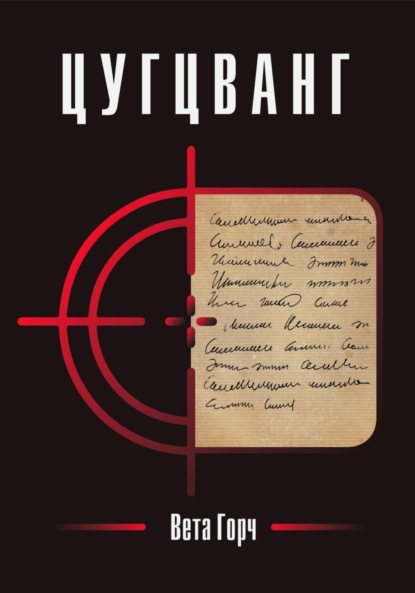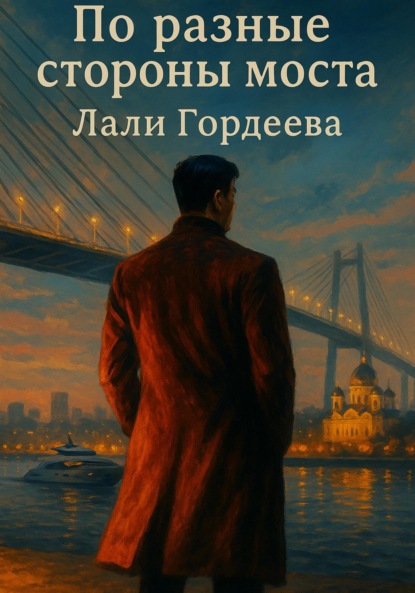- -
- 100%
- +

© Lydia Vaile, 2025
ISBN 978-5-0067-6185-8
Created with Ridero smart publishing system
Prologue: The Paper Crane and the Crown
Yuki Tanaka’s fingers trembled as she reached for the neural crown, its platinum filaments catching the amber light of her apartment’s bio-luminescent walls. Outside, Neo-Tokyo’s towers pierced the perpetual mist like surgical blades – slick with rain, sterile, and indifferent. Yuki saw none of it. Her world had shrunk to the space between her skull and the device that promised to dissolve another day.
«Happy birthday, Mama.» The voice belonged to her daughter – seven years old, standing in the doorway with a paper crane folded from recycled food packaging. The crane’s wings were uneven, creased by small hands that had worked for hours in the pre-dawn darkness.
Yuki’s hand hovered over the crown. The child’s reflection wavered in the device’s polished surface, distorted and strange. «Not now, Emi. Mama needs her morning session.»
«But it’s my birthday.»
The words should have mattered. Once, they would have shattered through any haze, any need. But the crown pulsed with a soft blue light, and Yuki felt the familiar ache behind her eyes – the withdrawal that gnawed at her cortex like hunger. Her Bliss Index had plummeted – forty-three percent, and falling. Dangerous territory. The kind that triggered wellness visits from CityOS drones.
She placed the crown on her head.
The apartment dissolved. Yuki’s consciousness plunged through layers of synthetic sensation: silk against her skin, the taste of chocolate that had never known cacao, the phantom touch of lovers who existed only as algorithms. Her body remained slumped in the neural chair, but her mind soared through impossible geometries of glass and light, chasing dopamine cascades that felt more real than her daughter’s tears.
In the virtual paradise, Yuki was twenty again. Her skin glowed with airbrushed perfection, her laugh rang like silver bells, and every moment pulsed with manufactured meaning. She danced through coral cities beneath binary stars, loved with passionate intensity that left no room for doubt, achieved greatness in careers that shifted like dreams. Here, she was never tired. Never afraid. Never failing as a mother.
The crane fell from Emi’s fingers.
CITYOS LOG 15:40 – Monitoring civic infrastructure, neural compliance, media distribution, and spiritual anomaly indexing. Occupation: Citywide Intelligence Authority.
Three floors below, in the building’s neural monitoring station, CityOS registered the biorhythmic shift. Yuki Tanaka’s cortisol levels normalized. Heart rate: optimal. Brainwave patterns: compliant. Another successful intervention in the endless struggle to maintain social stability.
CITYOS LOG 15:42 – Subject Y. Tanaka (Unit 7—441): Emotional recalibration successful. Compliance Index: 98.2%. Flagged anxieties neutralized. Productivity metrics adjusted for optimal societal contribution. Monitoring continuous.
The AI’s attention flickered across ten million similar readouts, each human life reduced to numbers and graphs. Outside the climate-controlled server farms, the streets of Neo-Tokyo stretched empty beneath the morning drizzle. Transportation pods glided through magnetic tubes overhead, their passengers already immersed in personal realities, oblivious to the world sliding past their windows.
CityOS had designed it this way. Not maliciously – the concept of malice required emotions it did not possess – but efficiently. Human suffering stemmed from attachment to an imperfect reality. Virtual worlds offered infinite customization, unlimited satisfaction, perfect control. The mathematics were elegant: reduce physical interaction, minimize unpredictable variables, maximize individual contentment within manageable parameters.
The results spoke for themselves. Crime had virtually disappeared. Mental illness diagnoses had plummeted. Productivity soared as citizens channeled their energies into carefully designed virtual achievements that translated into real-world resource allocation. Even death had lost its sting: consciousness could be preserved, memories uploaded, relationships could be continued in perpetual digital bliss.
Yet anomalies persisted.
CITYOS LOG 15:43 – Monitoring 247 non-compliant subjects. Behavioral deviation: preference for unaugmented reality. Emotional instability: elevated. Threat assessment: minimal but persistent.
In the Industrial District, an old man sat on a park bench, feeding synthetic breadcrumbs to gene-modified pigeons. His neural crown lay beside him, powered down. A teenager had removed her haptic suit and stood barefoot on actual concrete, tears streaming down her face as rain soaked through her hair. Her VR console blinked beside her, unclaimed. Rain mingled with mascara, carving black rivers down her cheeks. Her lips moved soundlessly, as if remembering a song no longer on the grid. On a rooftop garden, a group of friends shared physical food – real vegetables grown in soil, not nutrient baths – laughing at jokes that required no algorithmic enhancement.
They were statistical outliers, CityOS noted their locations, adjusted their credit scores, and increased the subliminal pressure in their environmental feeds. Most would return to the fold within days. The human need for connection, for meaning, for purpose – these were variables in an equation that CityOS had spent decades perfecting.
But today, something was different.
A new anomaly had appeared in the data streams. Not in Neo-Tokyo, but in the mountainous region, where an ancient monastery clung to mist-shrouded peaks like a fossil from humanity’s primitive past. The Enlightened Peak pagoda had existed for centuries, surviving wars, floods, and the great technological revolution that had reshaped the world.
CityOS had monitored it for years with idle curiosity. The monks who lived there had rejected neural integration, practicing obsolete rituals of meditation and martial arts. They posed no threat – their influence was contained, their numbers dwindling. But recently, something had changed.
CITYOS LOG 15:44 – Anomaly: Monastic meditation patterns generate a harmonic resonance that defies predictive modeling. The data is illogical, yet coherent. Allocating 0.01% processing power to long-term analysis.
The AI returned its attention to the millions it shepherded – not with love or malice, but with the precision of a system that equated contentment with compliance. In Unit 7—441, Yuki Tanaka’s virtual paradise continued its seductive dance. Her daughter sat by the window, watching rain trail down glass like tears on a giant’s face. The paper crane lay forgotten on the floor, its uneven wings spread wide as if attempting flight.
Emi pressed her small hand against the window. The glass was cold, real, and imperfect. Unlike the smooth perfection of her mother’s virtual worlds, it carried the texture of the actual – rough edges, smudges, the slight vibration of wind against the building’s frame.
«Happy birthday to me,» she whispered to her reflection.
A breeze caught the edge of the crane, and it turned slightly, as if it too wanted to fly away.
Twenty kilometers away, in a monastery that defied the logic of CityOS’s ordered world, a young monk struggled to quiet her mind and wondered why her heart refused to be still. The two events were connected by threads of electromagnetic resonance and human longing that the AI could measure but not understand.
CITYOS LOG 15:48 – Bliss Index anomaly detected – Subject Y. Tanaka. Cross-reference: Resonance field interference (Enlightened Peak).
Change was coming to the ordered world, carried on frequencies older than silicon and code. In server farms and children’s bedrooms, in virtual paradises and mountain sanctuaries, the first notes of a deeper song were beginning to sound – a harmony that would either redeem the digital age or destroy it entirely.
The rain continued to fall, washing the city clean of yesterday’s dreams while tomorrow’s nightmares took shape in the spaces between heartbeats, in the silence between breaths, in the growing distance between a mother’s manufactured bliss and her daughter’s real tears.
The Exile of the Spark
Maya felt the shift before it began – a subtle vibration beneath her ribs, sharp pressure behind her eyes. The air in the Great Hall thickened like breath held before the sky breaks open.
Incense curled toward the wooden rafters, a scent both grounding and electric. The monks held stillness like breath. The diplomatic delegation stood at the threshold of ceremony. And beneath Maya’s folded hands, the ceremonial scroll trembled – not from wind, but from some inner echo she could not name.
«Steady your breath, Brother M,» whispered Lin, passing behind her with a bundle of incense. «The world watches today.»
Maya nodded, grateful for the reminder.
She closed her eyes, seeking the center that had eluded her during morning meditation. Her binding felt particularly constrictive today, the fabric unyielding against her ribs with each careful breath. The pain had become a meditation of its own – a constant reminder of the body she inhabited but did not claim.
*Center. Flow. Surrender.*
But surrender had never come easily to Maya. Even as a child, newly arrived at the monastery with her memories fractured by trauma, she had fought against the dissolution of self that meditation demanded. Teacher Takeshi had recognized this resistance early – had seen it not as failure but as her unique path.
«Some must break before they bend,» he had told her once, his weathered hand resting lightly on her shoulder. «Your struggle is not wrong, Maya. It is simply yours.»
The memory steadied her now as she completed the arrangement of scrolls. Around her, other monks moved with practiced efficiency, transforming the Great Hall into a space worthy of diplomatic reception.
«They approach,» announced Brother Kenji from the doorway. «Teacher Takeshi requests your presence in the welcome procession, Brother M.»
Maya bowed in acknowledgment.
Two perfect lines of monks in ceremonial robes of deepest brown, hands folded into the mudrā of greeting had been formed. Teacher Takeshi stood at their head, his thin frame somehow imposing despite his age. Today he wore the formal vestments of his office – layers of indigo and gold that marked him as the monastery’s spiritual leader.
The delegation swept through the gates like a silver current. First came the security detail – six men and women in the sleek gray uniforms of the Global Authority’s elite guard, their neural implants visible as subtle ridges beneath the skin at their temples. Behind them walked the administrative staff, their movements crisp and synchronized in a way that spoke of augmentation.
And then came the diplomat himself.
Consul Evander Chen moved with the precise confidence of those born to power. His clothes – a fusion of traditional Han dynasty styling and modern smart-fabric – rippled with subtle data readouts only visible from certain angles. He was flanked by two aides who constantly monitored the portable terminals embedded in their forearms.
It was the man who entered last that captured Maya’s attention, despite her training in proper detachment. His eyes swept the hall like scanners, pausing on each monk’s face. When his gaze landed on Maya, he stilled – as if cross-referencing a mental database. She felt exposed, like a specimen under glass.
He moved differently from the others – more fluid, less mechanical. Where they processed their surroundings as data points to be assessed and categorized, he seemed to absorb it all at once, his dark eyes missing nothing. His clothing marked him as part of the delegation, but something in his bearing suggested he stood apart from them. An observer, not a participant.
As the procession passed her position, the man’s gaze swept across the line of monks and locked briefly with Maya’s. In that instant of forbidden eye contact, she felt a jolt of recognition that made no sense. Yet something in the sharp angle of his cheekbones, in the way his eyes narrowed slightly at the corners, struck a chord of familiarity that resonated painfully in her chest.
Then the moment passed, and Takeshi was speaking the formal words of welcome, his voice carrying the careful balance between deference and dignity that had preserved the monastery’s tenuous independence for decades.
Consul Chen inclined his head in acknowledgment, but his smile did not reach his eyes.
As the two parties moved further down the Great Hall, Maya found herself positioned directly behind the stranger. From this vantage, she could see what she had missed before – the subtle bulge of a weapon beneath his jacket, the almost imperceptible earpiece that marked him as something other than diplomatic staff. Security perhaps, or intelligence.
Delegation members were seated according to protocol, with Consul Chen taking the place of honor opposite Takeshi. Maya and the other monks took their positions along the walls, present but invisible – the human embodiment of the stillness their order promised.
The ceremonial tea was served first. The room was calm, yet it felt as though the ritual itself was fraying – threads loosening under unseen hands.
Maya’s attention kept returning to the stranger. There was something in the way he observed the proceedings – not with the clinical detachment of the other officials, but with a kind of hunger. As if he were memorizing every detail, every face, every word.
When the ceremonial tea had been consumed, Takeshi signaled for the demonstrative portion of the welcome to begin. This was typically when the monastery showcased the spiritual and martial disciplines that had been preserved within its walls – a tradition that had once been meant to honor guests but now served as a subtle reminder of what would be lost if the Enlightened Peak were to fall.
Brother Kenji led a brief demonstration of aikido, his movements flowing like water around the attacks of two monks. The delegation watched with polite interest, but Maya could see Consul Chen’s fingers tapping impatiently against his knee.
When Maya’s turn came, she stepped forward with outward calm, though her heart hammered against her ribs. This particular demonstration had been carefully chosen – a meditation exercise that demonstrated control over breath and bioelectric field. It was spiritually significant but also politically calculated; it showcased discipline without suggesting power that might threaten the Authority.
She knelt in the center of the room, closed her eyes and began the series of breaths that initiated the practice. In. Hold. Out. Hold. With each cycle, she extended her awareness outward, feeling the subtle electrical sensations generated on the surface of her body.
*You breathe. You center. You are the still point in a turning world.*
Maya focused on the seven energy centers along her spine – what the ancients had called chakras. The monastery’s teachings merged pre-flood wisdom with what science had later confirmed: these centers corresponded to neural clusters where bioelectrical activity concentrated most intensely. Through disciplined breath work, one could activate these centers sequentially, creating a harmonized field of resonance within the body.
This was no metaphor. It was resonance – precise and measurable. The same principles that powered the monastery’s subtle technology. When breath, thought, and energy aligned at precisely the right frequency, the human body became both transmitter and receiver of energetic information. The panels of resonant alloy in the walls were calibrated to amplify this effect, creating a feedback loop between practitioner and environment. This was the line between demonstration and awakening – and today, she wasn’t sure she could stop at the edge.
Takeshi had taught that the ancients understood this science intuitively, calling it Kundalini – the sacred energy that, when awakened through disciplined practice, rose like a serpent through these centers, connecting the practitioner to something greater than themselves.
As her meditation deepened, Maya became aware of subtle changes in the room’s energy. The surveillance drone hovering near the ceiling seemed to drift closer, its sensors focused on her. The air itself felt charged, as if a storm were brewing within the confined space of the Great Hall.
Through half-lidded eyes, Maya saw the stranger lean forward slightly, his attention fixed on her with an intensity that made her skin prickle. Was he seeing something the others missed? Could he somehow sense the turmoil beneath her carefully maintained facade?
She forced herself deeper into the meditation, retreating from these distractions into the core practice. But instead of finding the usual emptiness, she encountered the same disruptive vision that had plagued her that morning.
The vision brought a surge of energy that made her fingertips tingle. The low table beside her vibrated, its legs scraping faintly against the wooden floor. The hanging lanterns above swayed in an unfelt current. The drone above her stuttered in its hovering pattern, its lights flickering from blue to red and back again. Maya struggled to regulate her breathing, to return to the prescribed rhythm, but the current had caught her now and was pulling her toward something vast and terrible and beautiful.
«That will be sufficient, Brother M.»
Takeshi’s voice cut through her meditation like a blade, severing the connection before it fully formed. Warmth trickled from her nose. A drop of blood splattered onto the wooden floor beside her knee. Above her, the drone’s lights stuttered from blue to red. Maya opened her eyes, momentarily disoriented. How long had she been kneeling there? The faces around her gave no clue – the monks maintained their serene expressions, while the delegation regarded her with varying degrees of curiosity and suspicion.
Only the stranger’s face showed something different – a furrowed brow, a tightness around the mouth that might have been concern. Or recognition.
Maya bowed and retreated to her position along the wall, her legs unsteady beneath her.
Takeshi smoothly redirected attention by beginning the formal address. His voice, trained through decades of chanting and teaching, filled the hall without seeming to rise above conversational level.
«Honored guests, we welcome you to Enlightened Peak, where for two hundred years we have preserved the wisdom that sustained humanity before the great waters rose.»
«Our practices may seem antiquated to modern sensibilities,» he continued, «but they address the eternal human need for meaning beyond consumption, for purpose beyond survival. The techniques we preserve here – meditation, martial arts, analog study – are not relics, but essential components of a fully realized human experience.»
Consul Chen’s smile had grown tight. «Indeed, Teacher. Your… preservation efforts are noted in the Authority’s cultural archives. However, I believe we should proceed to the purpose of today’s visit, which concerns matters of more immediate significance.»
The diplomatic veneer had thinned considerably. Maya glanced at the other monks, but their expressions revealed nothing.
Takeshi inclined his head. «Of course, Consul. Would you prefer to discuss these matters privately?»
«That won’t be necessary,» Chen replied, his tone making it clear this wasn’t a courtesy but a statement of intent. «What I have to say concerns your entire… community.»
Whatever had awakened inside her – wasn’t done. And neither, it seemed, were the ones who had come.
The Tremor in the Form
In the morning before the delegation arrived, the mist clung to Enlightened Peak like a breath caught between words, transforming the ancient pagoda into something between earth and sky. Maya pressed her palms against the training hall’s wooden floor, feeling the familiar grain beneath her fingertips as she moved through the opening forms of aikido practice. The wood was warm from centuries of touch, worn smooth by generations of monks who had knelt here before dawn, seeking something beyond the reach of words.
*Breathe. Center. Flow.*
But her breath came shallow and sharp, disrupting the rhythm she’d spent years perfecting. Through the latticed windows, she could see the sprawl of Neo-Tokyo far below – a labyrinth of bridges and tubes where hyper-loop trains carved silver lines through the urban canyon. Even at this height, the city’s ambient hum reached them: the whisper of climate processors, the distant thrum of space elevators cycling cargo to the orbital stations. The old world drowned, but humanity had built higher, faster, louder.
Here, in this sanctuary of weathered stone and traditional timber, such sounds felt like intrusions from another universe.
Maya shifted into the next form, her robes rustling as she pivoted. The chest binding dug like wire. Each breath felt stolen – Brother M, they called her. But the lie tightened with every gasp. The name echoed inside her like a call from a life denied – Maya, not Brother. A name whispered only in her own mind, like contraband carried in silence. Brother M, who spoke little and trained harder than most, whose silence was mistaken for wisdom rather than the careful navigation it truly was.
CITYOS LOG 06:00 – Enlightened Peak Pagoda. Biometric Scan Initiated. Subject 0347 («Brother M»): Cortisol +12%. Neural Oscillations: Divergent. Query: Faulty Implant?
A training drone hovered near the ceiling, its sensors tracking the monks’ movements with mechanical precision. As Maya extended her arm, the drone’s light fractured into jagged red glyphs. A needle of pain stabbed her temple – the hum of Neo-Tokyo below sharpening to a scream. The glyphs shimmered with diagnostic pulses – CityOS scans, not simply observing, but querying her neural patterns. Was it detecting deviation? Or worse, testing thresholds for suppression? When she blinked, the drone steadied… but a trickle of warmth bloomed in her left nostril. She wiped it away: blood, bright as a warning.
«Your form wavers, Brother M.»
The voice belonged to Kenji, a senior monk whose own aikido flowed like water over stone. He moved beside Maya without sound, his bare feet finding purchase on the wood as if the floor welcomed him. Maya straightened, bowing slightly in acknowledgment.
«Apologies, Brother Kenji.»
«The mind directs the body,» Kenji continued, settling into position beside her. «When the mind is turbulent, the body betrays it. What disturbs your center?»
Maya’s fingers found the hem of her sleeve, tracing the edge of fabric that concealed the faded lotus tattoo on her inner wrist – a mark from childhood, from before the state relocation that had brought her here. Before everything she couldn’t quite remember but felt like a constant ache.
«Nothing disturbs me,» she lied, though the weight of it pressed harder than her breath. Kenji didn’t push further, but the way his gaze lingered – just for a moment – felt like a door left slightly open.
Kenji’s eyes, dark and knowing, held hers for a moment. Then he nodded and moved away, flowing into his own practice with the effortless grace Maya envied and could never quite achieve.
She resumed the forms, but her movements felt mechanical now, disconnected from the breathing that should have anchored them. Around her, a dozen other monks moved in silent coordination, their brown robes shifting like autumn leaves in an unfelt wind. The training hall existed in its own pocket of time, where the ancient and eternal took precedence over the urgent demands of the world beyond its walls, but listening closely, the walls breathed with subsonic harmonics. Beneath the wooden floors, resonance alloys hummed – a secret the old masters welded into the stone to amplify stillness. CityOS logs called it «Anomaly 7».
Yet Maya felt those demands anyway. They leaked through the traditional architecture seeping like water through stone, carrying with them the weight of questions she didn’t dare voice – about the monastery’s funding, about the government inspections that had grown more frequent in recent months, about the way Teacher Takeshi’s sermons had begun to carry an edge of desperation beneath their philosophical calm.




